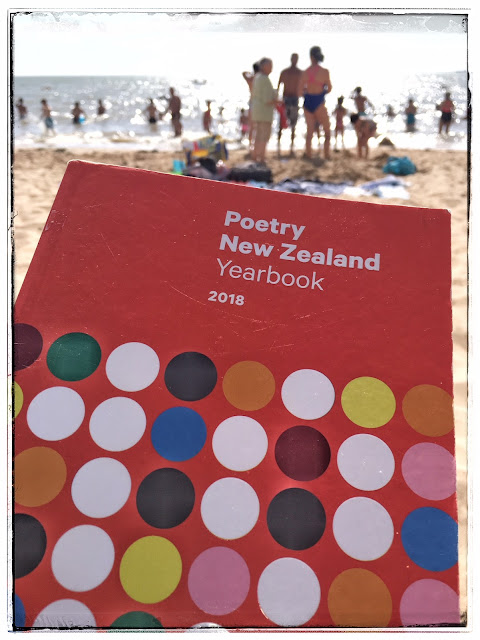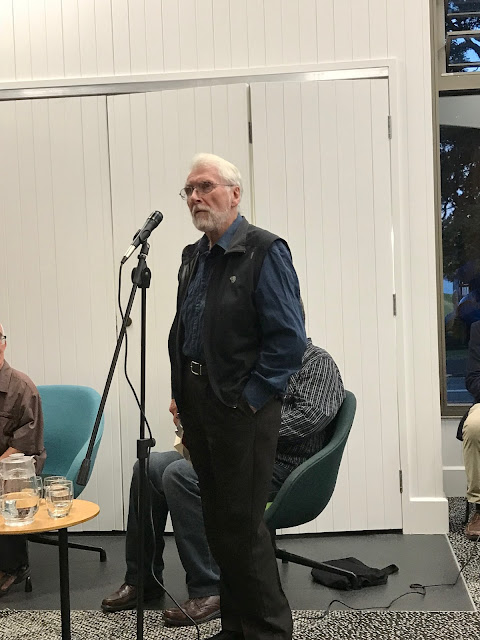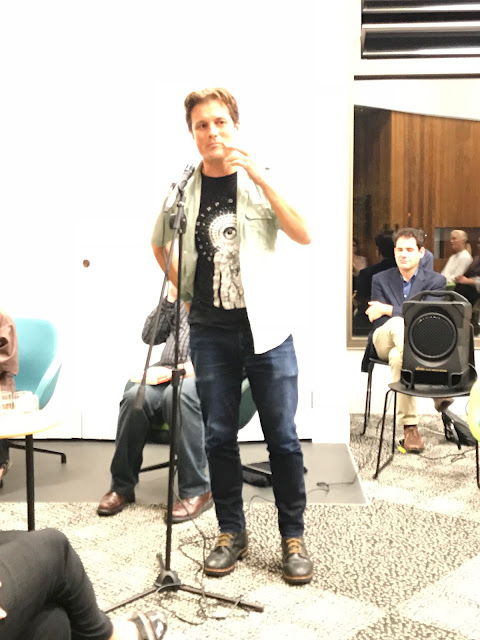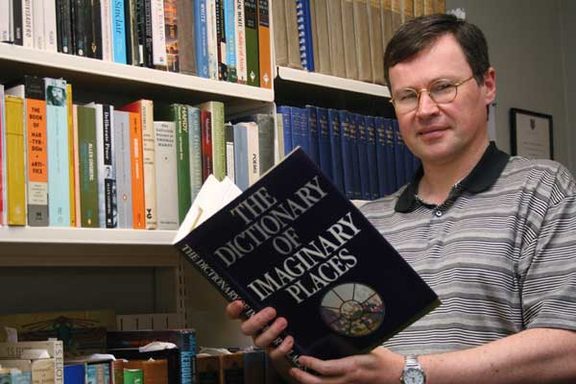
Inaugural Poetry New Zealand Yearbook
student poetry competition:
Winners 2018 - announced on Poetry Day, 24th August 2018
We are thrilled to announce the winners of the Poetry New Zealand Yearbook Student Poetry Competition.
Year 11 category winners:
Year 12 category winners:
Year 13 category winners:
To read all the winning entries, click here.
To listen to the judge's remarks on the winning entries, click here.
Congratulations to all the winners and thanks to everyone who entered!
The first-prize winners in each category will be included on pp.214-19 of the upcoming edition of Poetry New Zealand Yearbook, published in March 2019.
Year 11 category winners:
1st: ‘275 Love Letters to Southside’ by Aigagalefili Fepulea‘i-Tapua‘i, Aorere College
2nd: ‘Madras’ by E Wen Wong, Burnside High School
3rd: ‘An Acrostic Poem About Money’ by Leila Barber, Samuel Marsden Collegiate School
4th: ‘Just Passing Through’ by Sophie Newton, Glendowie College
Year 12 category winners:
1st: ‘Earth is a Star to Someone’ by Kathryn Briggs, Baradene College of the Sacred Heart
2nd: ‘a thank you letter to my therapist’ by Fiona Hoang, Auckland International College
3rd: ‘Empty Boxes’ by Sophie Mance, Wellington High School
4th: ‘My Cotton Skin’ by Jessica Tibbs, Motueka High School
Year 13 category winners:
1st: ‘Snake’s Tongue’ by Amberleigh Rose, Kuranui College
2nd: ‘To the boy who will eventually fall in love with me’ by Katriana Taufalele, McAuley High School
3rd: ‘Untitled’ by Phillip Toriente, Dilworth School
4th: ‘Unfinished Poems’ by Mele Toleafoa, McAuley High School
To read all the winning entries, click here.
To listen to the judge's remarks on the winning entries, click here.
Congratulations to all the winners and thanks to everyone who entered!
The first-prize winners in each category will be included on pp.214-19 of the upcoming edition of Poetry New Zealand Yearbook, published in March 2019.
For further comments and details, please consult the following online links and articles:
- Anna Bowbyes, Poetry New Zealand Student Poetry Competition Winners. Massey University Press (24/8/18):
We are thrilled to announce the winners of the Poetry New Zealand Yearbook Student Poetry Competition, judged by Jack Ross.
To read all the winning entries, click here.
Congratulations to all the winners and thanks to everyone who entered!
The first-prize winners in each category will be published in next year’s edition of Poetry New Zealand Yearbook, publishing in March 2019.” - Aorere College Facebook Page (13/9/18):
A huge congratulations to Fili Fepulea'i-Tapua'i who has won the Year 11 category of the Poetry New Zealand Yearbook Competition.
Described as “hard-hitting,... from the heart" by competition Judge Jack Ross, Fili's winning poem- "275 Love Letters to Southside" will be published in the 2019 edition of the Poetry New Zealand Yearbook. What an awesome achievement!. - Amberleigh's winning way with words. Kuranui College Online Newsletter (19/9/18):
Kuranui Deputy Head Girl, Amberleigh Rose, has won first place in the high school section of the Massey University Press Poetry Yearbook competition, designed to foster a love of words.
Amberleigh’s poem entitled Snake’s Tongue is an unconventional poem about love, causing one of the judges to comment in their feedback that they liked it because “It was a bit different and showed wisdom beyond her years”.
“It’s what I call my weirdo poem,” explained Amberleigh. “It’s not straightforward and it twists and flicks, keeping you guessing.”
The poem is going to be in next year’s edition of the yearbook and someday she would like to write a book of poems herself. For Amberleigh, poetry is a passion, especially slam poetry. “I love the way the words feel and their sound, the meaning behind how you speak and what message you’re trying to send.”
Growth, another one of Amberleigh’s poems, was chosen to be a part of Christine Daniell’s ‘Poems Around Town’. The street art project focuses on fostering a love of words. A panel chose poems from Wairarapa to hang up around the community and Amberleigh’s poem has pride of place on the side of the Trust Lands Trust building in Masterton.
Writing comes naturally to Amberleigh, but it wasn’t until she experienced poetry that her creative side really took off. “It was like a key had turned inside me and there was no going back.”
Kuranui’s Head of English, Kathryn Holmes, said her work ethic and natural ability has meant that she has excelled at the college. “However, it is her heart that makes her very special; this adds depth to her poetry which means her message can resonate with the reader.”
Apart from writing poetry, Amberleigh also excels in the sciences and her love of environment and communities has seen her enrol in Canterbury University, where she will study Natural Resource Engineering. “I am interested in making our world a cleaner, better place.” - Baradene College of the Sacred Heart Business Page (1/11/18):
Congratulations to Year 12 student and creative writing club member Kathryn Briggs. Kathryn's poem “Forgetting” has been chosen for publication in the Young Writers Programme journal Signals 2018 for secondary schools and libraries in Auckland. Her poem "Earth is a star to someone" is also to be published in next year’s edition of Poetry New Zealand Yearbook:
Published Poems
Congratulations Kathryn Briggs
2018 10 31 K Last Day Baradene
Year 12 student, Kathryn Brigg's poem “Forgetting” has been chosen for publication in the Young Writers Programme journal Signals 2018 for secondary schools and libraries in Auckland. The Young Writers Programme is based at the Michael King Writers’ Centre, The National Library, Auckland and publishes Signals, a literary journal that showcases a selection of work students have produced during the year. These pieces may be poetry, prose, comic-art or journalistic writing.
In Term 3, Kathryn's poem "Earth is a star to someone" received 1st place for the Year 12 category of the Poetry New Zealand Yearbook competition run by Massey University. This poem will be published in next year’s edition of Poetry New Zealand Yearbook.
Click here to read 'Earth is a star to someone'.”
•


















































